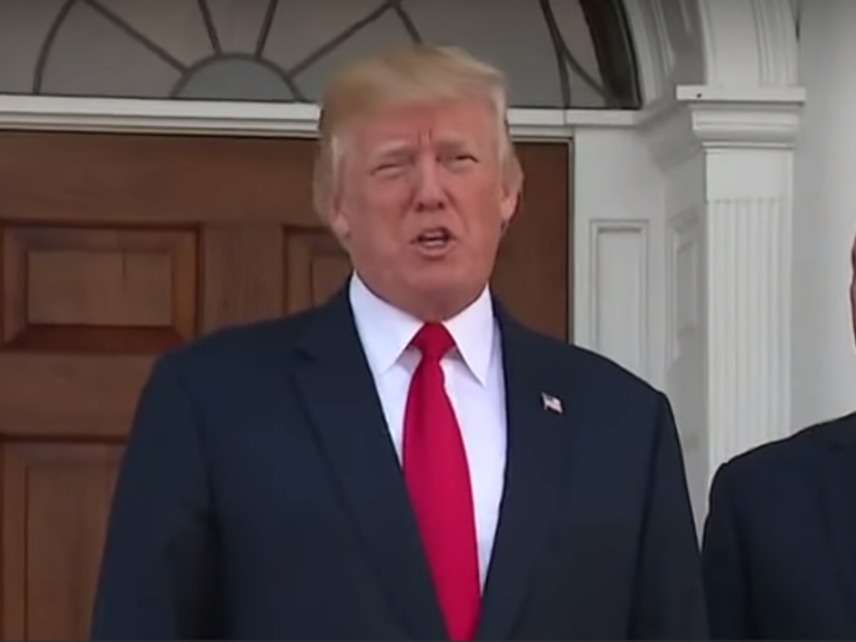Can Extremer Vetting Reduce the Already Tiny Risk of Terrorism?
A new Cato Institute study finds that screening of visitors, immigrants, and refugees is about as thorough as can reasonably be expected.

Donald Trump has defended his executive orders restricting travel to the United States, the latest of which will be considered by the Supreme Court next week, as stopgaps necessary to allow development of "extreme vetting" procedures aimed at preventing terrorists from entering the country. But as a new report from the Cato Institute shows, vetting of visitors, immigrants, and refugees is about as thorough as can reasonably be expected, and making it more "extreme" is apt to impose costs that far exceed any conceivable benefits.
"The evidence indicates that the U.S. vetting system is already 'extreme' enough to handle the challenge of foreign terrorist infiltration," writes Cato immigration policy analyst David Bier in the new study (which Shikha Dalmia noted in a post about Syrian refugees this morning). "The country has maxed out its capacity to improve immigration vetting. Fortunately, vetting failures are very rare and pose a small risk to the United States."
Bier reviews how the 9/11 attacks, which revealed screening procedures that were in many ways embarrassingly lax, prompted various reforms, including more and better-trained personnel, increased collection and sharing of information, greater use of interviews and biometric data, and a new focus on terrorism prevention among immigration and State Department officials. These reforms seem to have made vetting failures much less likely. "Vetting failures are rare and have become much rarer since 9/11," Bier writes. "There were 52 vetting failures in the 15 years leading up to 9/11, four times as many as in the 15 years since the attacks." During that period, the vetting failure rate—vetting failures as a share of entry approvals—fell by 84 percent, from 1 in 4.8 million to 1 in 29.1 million.
Bier defines a vetting failure as a case in which the U.S. government grants entry to a foreigner "who had, at the time of approval, terrorist associations or sympathies and later went on to commit any kind of terrorism offense, including support for terrorist groups abroad." Unless there is evidence to the contrary, Bier assumes pre-existing terrorist inclinations whenever the crime happens within 10 years of arrival but excludes people who entered the country when they were younger than 16.
Only one of the 13 post-9/11 vetting failures identified by Bier resulted in a fatal attack within the United States, the focus of Trump's concern. That case involved Tashfeen Malik, a native of Pakistan who, together with her U.S.-born husband, Syed Rizwan Farook, carried out the 2015 shooting that killed 14 people in San Bernardino. Attributing all of those fatalities to her, vetting failures have been tied to an average of less than one death a year in the United States since 9/11. To put it another way, an American's risk of dying as a result of a vetting failure—the risk that Trump is supposedly trying to reduce—is 1 in 328 million per year.
It is not at all clear what can be done to make that tiny risk tinier. The San Bernardino attack, for example, has encouraged increased attention to the social media activity of would-be visitors and immigrants, because Malik had expressed support for ISIS and terrorism in Facebook messages before receiving a green card as Farook's fiancée. But as Bier points out, "social-media screening would not have identified these messages because she had strict privacy settings—and she used a pseudonym online to hide her identity."
Bier notes that added safeguards, especially ones as hamhanded as those Trump seems to prefer (such as excluding all travelers from certain countries), impose costs by preventing economically beneficial tourism and immigration. "No vetting regime will ever catch every bad actor," he writes. "The government has already responded to 9/11 and the visa vetting failures over the last 15 years in targeted ways, addressing the specific shortcoming that those failures revealed. Blindly enacting new requirements without any evidence that these standards are capable of protecting the country will only create unnecessary costs."


Show Comments (73)